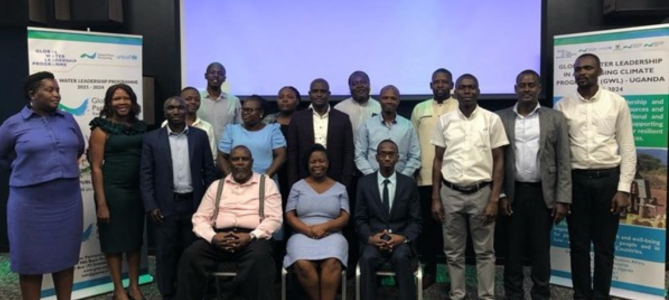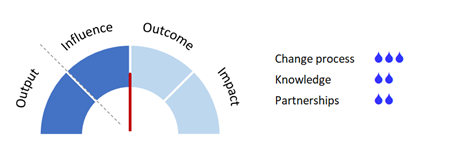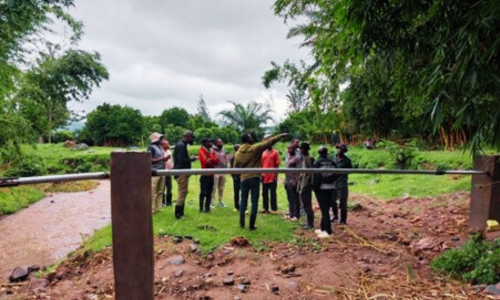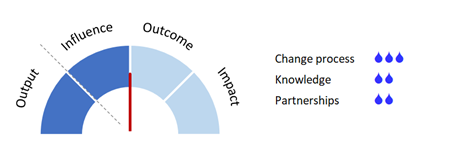Regional impact
Building climate finance know-how in Uganda
In 2023, the Global Water Leadership in a Changing Climate programme (GWL) built the climate finance capacity of members from two working groups in Uganda. Unlocking finance is key to GWL’s aim to implement inclusive, climate-resilient water policies and strategies in low- and middle-income countries, including Uganda.

Working groups in all GWL countries are seeking to address bottlenecks slowing integrated water resources management (IWRM) and water, sanitation, and hygiene (WASH) action. Uganda has formed working groups on limited finance and on the weak legal policy and institutional framework for IWRM and WASH.
In a one-day session led by GWL, 40 working group members including high-level government representatives, women- and youth-led groups, and other stakeholders in the water sector came together to develop a response strategy that will mobilise climate finance.
During the plenary discussion, several matters emerged as the most prominent among the attendees. They highlighted that there is a lot of uncertainty about climate finance; that the largest share of climate finance is unavailable to some countries; and that there is a need for a national framework in Uganda to mobilise climate finance. These concerns reinforce GWP Eastern Africa’s focus on supporting countries in the region to access climate finance.
Enhancing the knowledge of the working groups offered members new skills and techniques in resource mobilisation and accessing climate financing opportunities for IWRM and WASH in Uganda. Through this, members were able to cost action plans for bottlenecks around the water sector, with an emphasis on key activities that can attract funding in their response strategy.

Mainstreaming water resilience in district land use plan in Rwanda
Sustainable water management is critical in Rwanda. Agriculture is a major economic sector, employing around 70% of the population, and irrigation is the biggest water user.
Under the framework of advancing climate-resilient plans and policies for water, the Global Water Leadership in a Changing Climate programme (GWL) in Rwanda is facilitating the mainstreaming of water resilience in land use planning across Rusizi and Karongi districts. Land use is an important factor in achieving sustainable water management in Rwanda, and GWP Eastern Africa, through the Rwanda Water Partnership, is playing a pivotal role by facilitating GWL activities, providing financial support, and taking the technical lead.

There has been a shift from centralised to decentralised water and land resources management in Rwanda as the country aims to make more decisions at the catchment, sector, and district levels. In 2023, GWP Rwanda focused on identifying the needs of water users through a stakeholder consultation, involving district officials, local leaders, and community members, to better understand water resilience risks through local experiences and to identify mitigation gaps at all levels.
Hydrological analysis and mainstreaming water resilience into district land use plans are essential for understanding water sustainability on a catchment scale. However, their success often depends on the availability of data for models. In 2023, GWP Rwanda also conducted a field visit to identify the physical characteristics of flood-prone areas. This enabled hydrological and hydraulic modelling and the proposal of appropriate measures to minimise the impacts of floods on socio-economic activities in Rusizi and Karongi districts.

